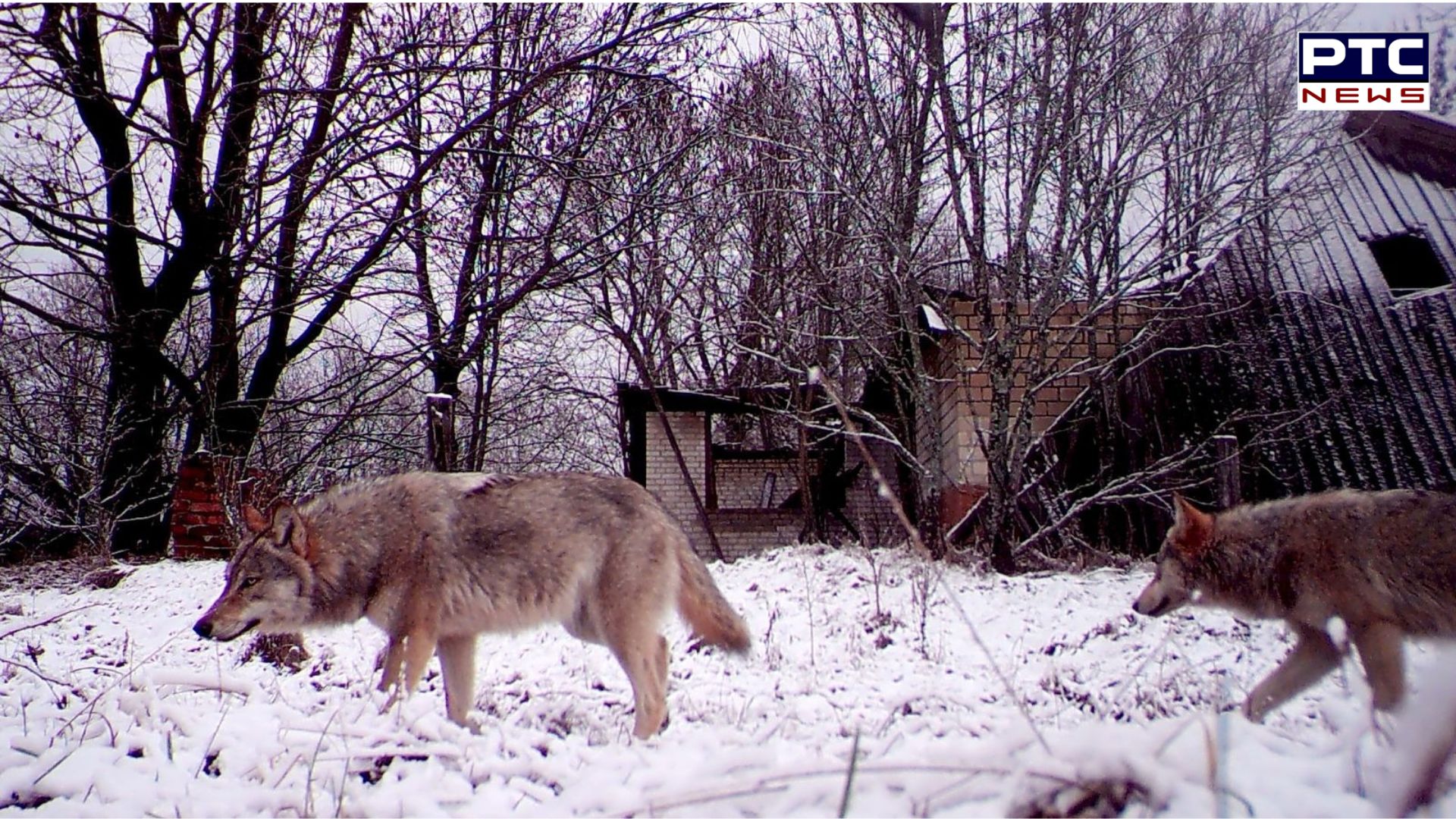

Chernobyl wolves develop resistance to cancer, offering hope for human treatments
PTC Web Desk: In a surprising revelation, mutant wolves residing in the deserted streets of Chernobyl have exhibited a remarkable resistance to cancer, prompting optimism among scientists regarding potential applications in human cancer research.
The Chernobyl nuclear disaster in 1986 led to the evacuation of over 100,000 people from the city due to the release of cancer-causing radiation. The Chernobyl Exclusion Zone (CEZ), spanning 1,000 square miles, was established to prevent human entry, given the persistent cancer risk. While humans have stayed away, wildlife, including wolves and horses, has thrived in the abandoned city for more than 35 years.
Cara Love, an evolutionary biologist and ecotoxicologist at Princeton University, along with her research team, embarked on a study to unravel how these Chernobyl wolves not only survive but seem to have developed resistance to the cancer-causing effects of long-term exposure to radioactive particles.
In 2014, the researchers fitted the wolves with radio collars to monitor their movements, providing real-time data on their locations and radiation exposure levels. Blood samples were also collected to understand how the wolves' bodies respond to radiation with potential cancer-causing effects.
Also Read | Bengaluru techie's tweet on tech recession leads to job loss
Also Read | Pakistan Elections Results: Nawaz Sharif, Imran Khan both claim victory | IN POINTS
Also Read | Happy Teddy Day 2024: Heartwarming Teddy Day Wishes to Spread Love and Joy
Also Read | Record-breaking voter registration: 96.88 crore people enlisted for Lok Sabha Elections
The findings revealed that Chernobyl wolves are exposed to a daily radiation dose exceeding 11.28 millirem throughout their lives—six times higher than the legal safety limit for humans. While their immune systems exhibit alterations similar to those observed in cancer patients undergoing radiation treatment, the researchers made a groundbreaking discovery: specific genetic information in the wolves appears to be resilient to increased cancer risk.
Contrary to numerous studies identifying mutations in humans that elevate cancer risk, such as the BRCA gene linked to breast and ovarian cancer, Ms. Love's research focused on identifying protective mutations that enhance the likelihood of surviving cancer.
Despite the promising results, challenges, including the Covid-19 pandemic and Russia's invasion of Ukraine, have hindered the researchers from returning to the CEZ in recent years. Cara Love emphasised the priority of ensuring the safety of people and collaborators in the affected region.
The groundbreaking findings were presented by Cara Love at the annual meeting of the Society of Integrative and Comparative Biology in Seattle, Washington, last month. The implications of the research extend beyond the unique environment of Chernobyl, offering a potential avenue for understanding and developing strategies to combat cancer resistance in humans.
-
